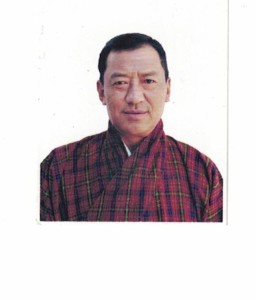Mr. Rinzin Dorji – We are doing talent identification in Bhutan to involve them to our programs
Mr. Syed Abdul Kadir is the President of the Singapore Boxing Association who has been working also in the international events as official. Mr. Syed Abdul Kadir replied the questions of the management of the Asian Boxing Confederation and introduced Singapore’s current Olympic boxing life, their future projects and the main difficulties in the country.
Mr. Syed Abdul Kadir was Singapore’s best boxer in their history and has got more than 50 years of experiences in our sport. Singapore organised the inaugural Youth Olympic Games boxing event in 2010 and the 2015 Southeast Asian Games. President Mr. Syed Abdul Kadir was the Competition Manager in both competitions. These two events were organized by the tiny island with resounding success.
Singapore sent boxers to many of ASBC (formerly FAAB) and AIBA events in the past and recently boxers to Tashkent for the ASBC Asian Confederation Boxing Championship, and to the ASBC Asian Confederation Youth Championships in Bangkok. They were unable to send a bigger delegation to every event as finance is their biggest issue in Singapore.
– Could you please introduce your country’s boxing life?
– Boxing was introduced in the 1930s by the British Army and has been very successful in the Professional rank and is dubbed the Mecca of Professional Boxing with boxers coming from parts of Asia, Europe, America and Africa. With the popularity of Pro Boxing, the Amateur Counterpart also flourished. Pro Boxing survived until early 70’s but Amateur Boxing remains until now. Boxing is one of the first nine sports affiliated to the Singapore Olympic Sports Council (SOSC) in 1947 and later known as Singapore National Olympic Council (SNOC).
Currently we have 11 clubs affiliated to the Federation and over 200 enthusiasts of all categories practising boxing. There are many other Martial Arts Clubs which includes boxing activities also in Singapore. We hope to invite them to be part of our affiliate in order to increase the participation base.
– Would you like to tell us your strategic plans for the future and the key developments in your country?
– The main concern is to increase the base, which is very challenging as boxing is the toughest sport of all sports but we are doing our best to increase the base progressively. Boxing is not in the school curriculum with only one school having the programme since 1900 until now. I studied in that school learning the art of the “gentleman sport” since 1959 when I was 11 years of age.
However, only a handful continued after completed school. This is the real challenge to get school children to participate in boxing where the parents are the main stumbling block. However, our schoolchildren are very it savvy now and many got interested in boxing where boxing events are broadcasted live through social media. This is a plus factor. We are also working towards increasing the pool of qualified R/Js, Coaches and ITOs.
In order to have our plans to succeed we are doing our best in looking ways to raise funds. Although the Federation receives funds annually from the Sports Authority, it is insufficient to cater to all needs. We must work aggressively towards these challenges to achieve our goals.
In the pipeline we are in the process to develop women boxing although we had sent some to various regional and international tournaments and will be sending three boxers to Vietnam for the ASBC Asian Confederation Women’s Boxing Championship in November. As a beginner we are planning to organize a women tournament in December and hope to attract good participations.
– What are the main strengths and issues in your boxing life?
– I was boxing when I was 9 years old and champion of my village as the school only accept boys from 11 where I learned the proper techniques from my peers. I started competitive boxing training since 1966 and retired in 1976. Competed for 10 years and represented my country to all the major games including the 1972 Munich Olympic Games. I had also officiated as R&J in ASBC and AIBA major events and also as ITO at all major games including the 2012 London Olympic Games and Olympic Qualifying Tournaments.
I have seen all kind of characters in world boxing with my over 50 continued years of involvement in the sport I love dearly. During my tenure as the National Coach we have won many medals including gold. However, we cannot develop boxing in our country like soccer, the number one sport, but will not stop promoting our beloved sport in our progressive ways and who knows one day at least one of our athletes ultimately qualify for the Olympic Games. The main issues are finance and the challenges to attract youngsters to learn to love the sport.


